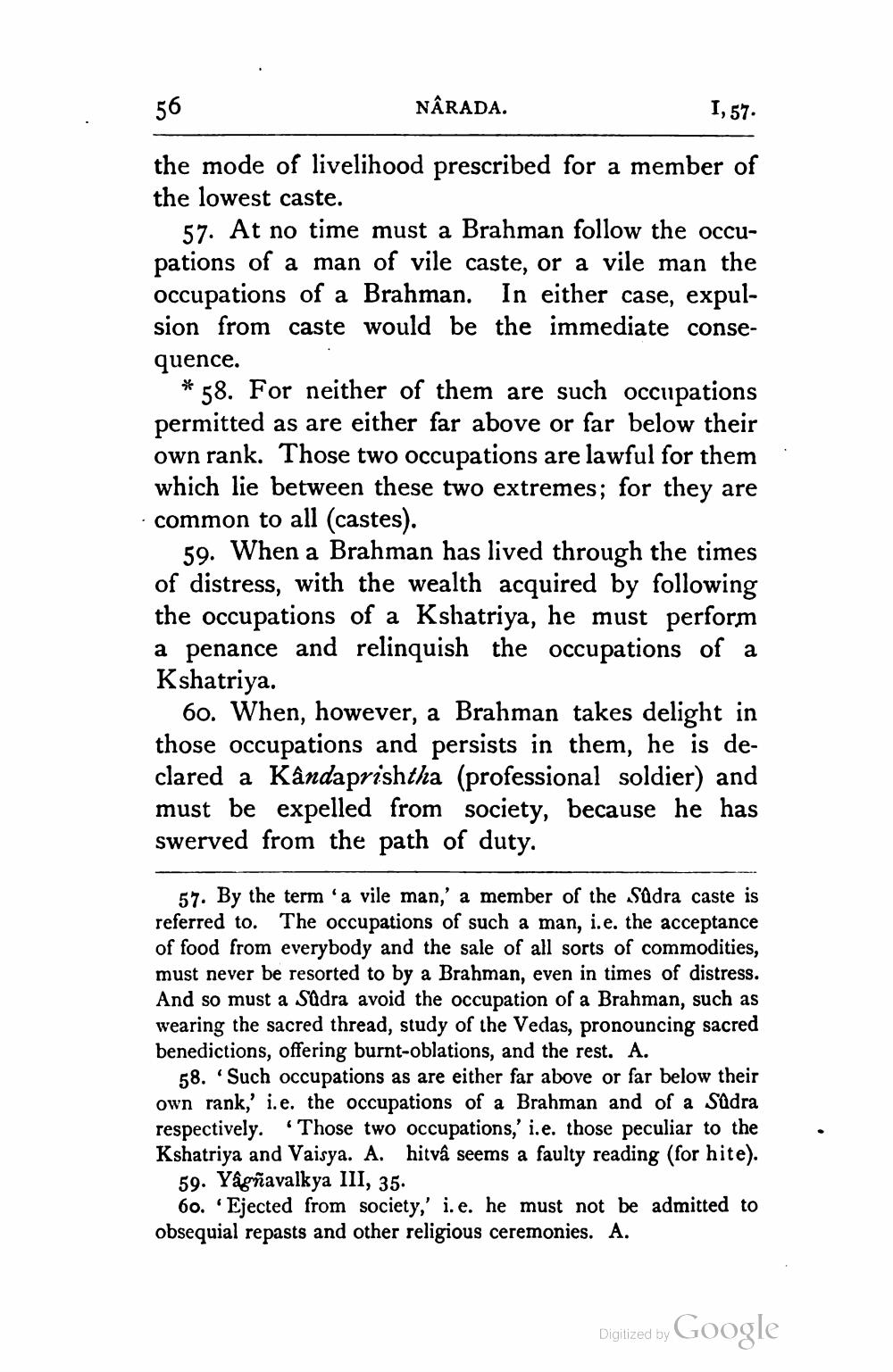________________
56
NÂRADA.
1,57.
the mode of livelihood prescribed for a member of the lowest caste.
57. At no time must a Brahman follow the occupations of a man of vile caste, or a vile man the occupations of a Brahman. In either case, expulsion from caste would be the immediate consequence. .
* 58. For neither of them are such occupations permitted as are either far above or far below their own rank. Those two occupations are lawful for them which lie between these two extremes; for they are common to all (castes).
59. When a Brahman has lived through the times of distress, with the wealth acquired by following the occupations of a Kshatriya, he must perform a penance and relinquish the occupations of a Kshatriya.
60. When, however, a Brahman takes delight in those occupations and persists in them, he is declared a Kandaprishtha (professional soldier) and must be expelled from society, because he has swerved from the path of duty.
57. By the term 'a vile man,' a member of the Sadra caste is referred to. The occupations of such a man, i.e. the acceptance of food from everybody and the sale of all sorts of commodities, must never be resorted to by a Brahman, even in times of distress. And so must a Sadra avoid the occupation of a Brahman, such as wearing the sacred thread, study of the Vedas, pronouncing sacred benedictions, offering burnt-oblations, and the rest. A.
58. Such occupations as are either far above or far below their own rank,' i.e. the occupations of a Brahman and of a Sudra respectively. Those two occupations,' i.e. those peculiar to the Kshatriya and Vaisya. A. hitvâ seems a faulty reading (for hite).
59. Yâgñavalkya III, 35.
60. 'Ejected from society,' i.e. he must not be admitted to obsequial repasts and other religious ceremonies. A.
Digitized by Google




